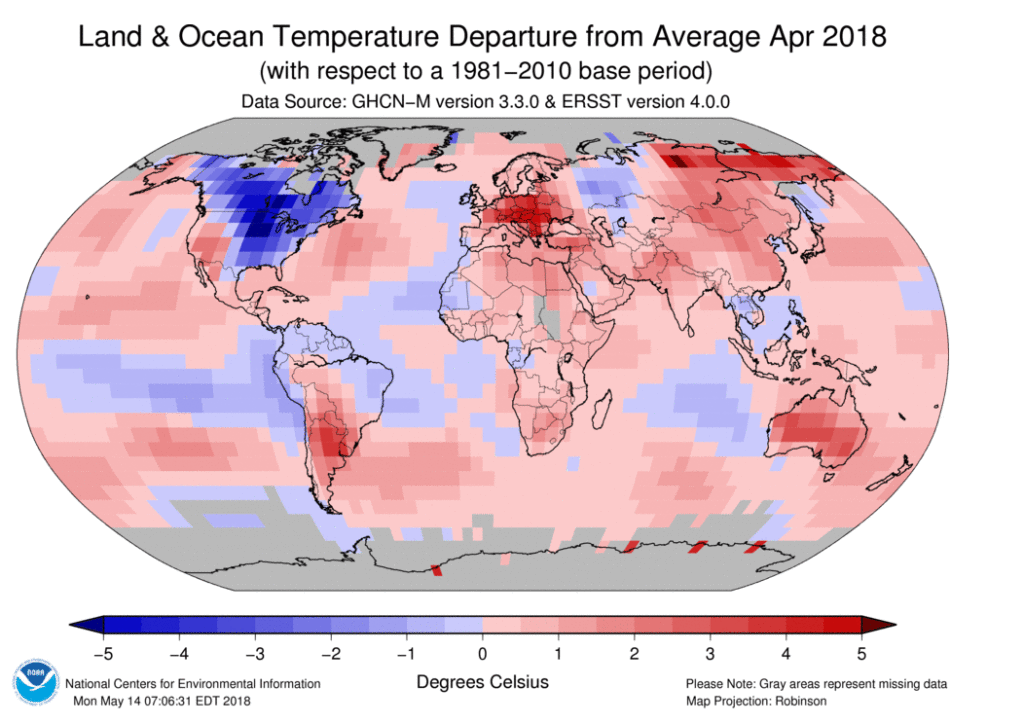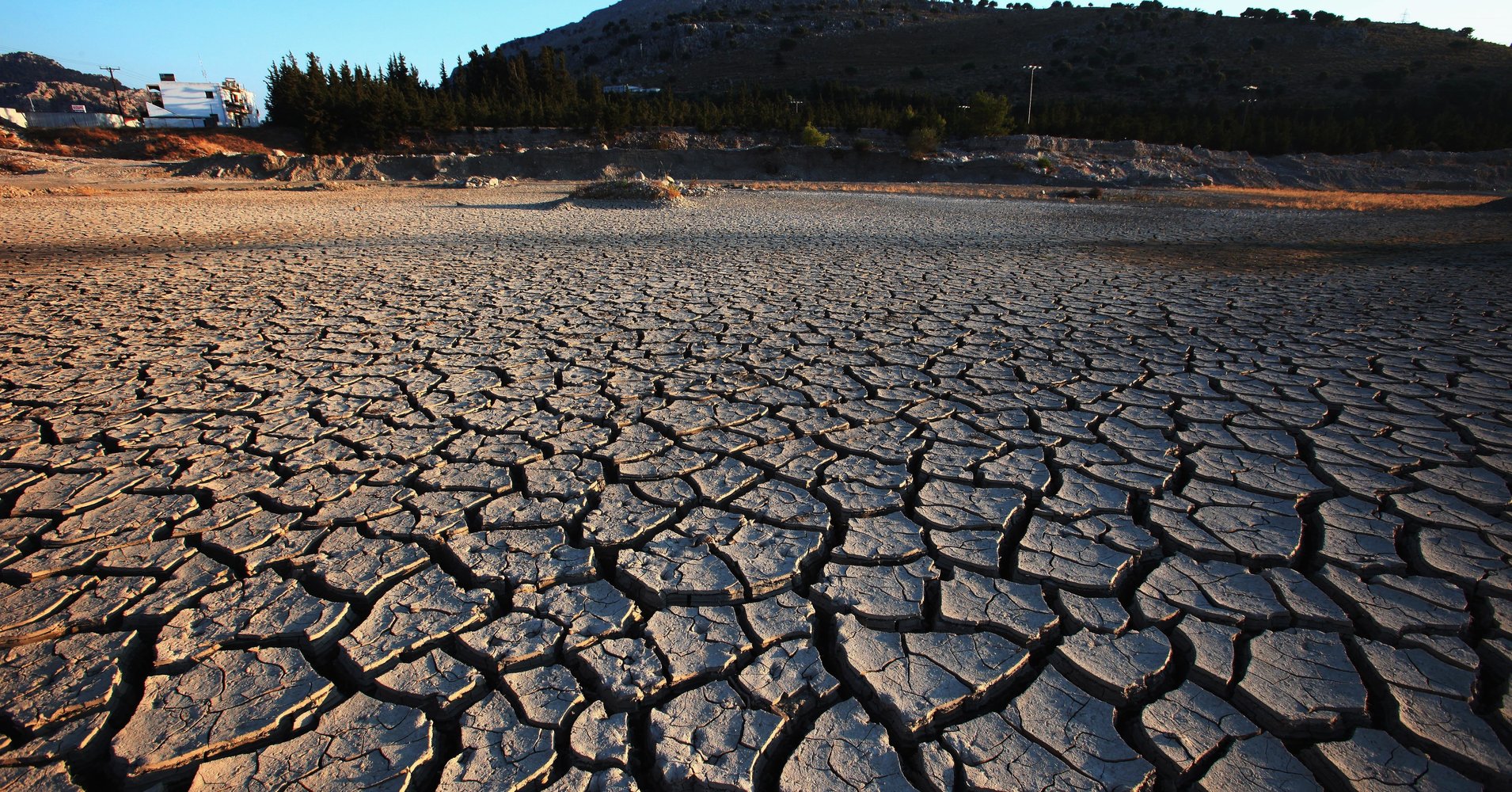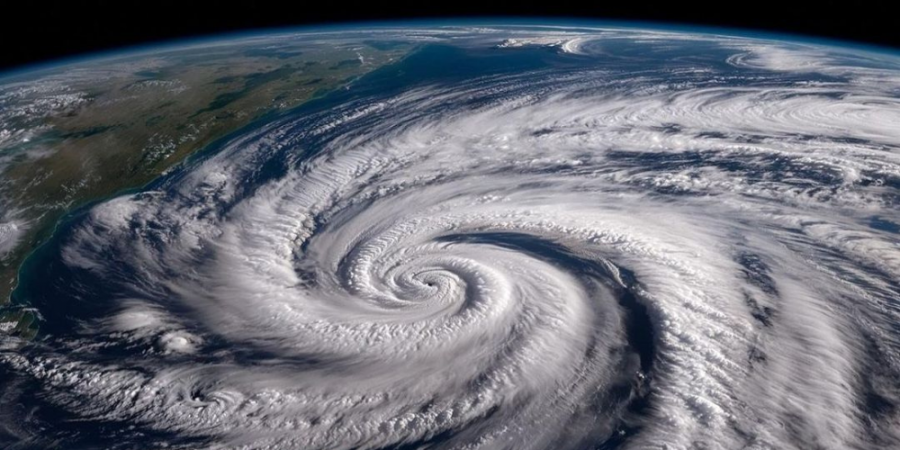Climate change broke a new record last month: A news report by NOAA revealed that for 400 consecutive months – that is more than 33 years in a row – Earth’ temperatures have been higher than the 20th century average, and the climatologists’ report is not mincing words as to the evident reason behind the increasing global temperatures.

National Oceanic and Atmospheric Administration’s report reveals that April, 2018 marked the 400th consecutive month where Earth has experienced above-average temperatures
400th Month of Climate Change
April, 2018 marked the 400th consecutive month where Earth has experienced above-average temperatures, said the most recent global climate report by National Oceanic and Atmospheric Administration (NOAA). The most recent milestone in climate change means that global temperatures have been rising above the 20th century average for 33 years in a row – a clear sign of global warming that is ringing alarm bells in the environmental protection community.
According to the report, 1984 was the last year when Earth was cooler than the century average. It was the year when Apple had released its first Macintosh PC and the United States was under the presidency of Ronald Reagan.
NOAA says that it is still gathering climate data from the 80’s to paint a more accurate picture of climate change over the past few decades, but from the existing data, the researchers have concluded that last month was the third-hottest April recorded in Earth’s history, and if we don’t take action to curb the disastrous effects of global warming, next year could set a new climate change record.
Climatologists Blame Humans for Rising Temperatures
Climate change scientists didn’t hesitate to point fingers at us humans for being the sole cause of the planet’s destruction.
Ahira Sanchez, a climatologist from NOAA, told CNN that the record-breaking temperatures being observed around the globe are the result of human-caused warming, and no matter how much people deny, climate change is real and the sooner we accept the reality and make an effort to do something about it, the higher chance we have to save the planet and its species.

According to the report, 1984 was the last year when Earth was cooler than 20th century average baseline
Although lawmakers and environmental protection agencies have been making efforts to reduce the emission of greenhouse gases, there is considerable resistance from the oil and fossil fuel industry which is making billions in profits at the expense of the planet and its environment.
Developing nations with rapidly increasing economies and populations are becoming more reliant on fossil fuels and other natural energy resources, but it is the developed nations like the U.S. and China which are doing the most harm to the environment through an excessive use of carbon-emitting non-renewable energy resources.
Global Warming, an Old Phenomenon
Deke Arndt, a climate scientist at NOAA says that the new milestone of ‘400 consecutive months of above-average temperatures’ simply underlines the problem, but the concept of global warming isn’t anything new. Arndt added that the world we live in is warmer than it was a few decades ago and the dismal trend may continue in the future.
The 20th century average baseline has been used as the benchmark by climatologists to compare weather data and observe climate variability over the past decades. But Arndt says that no matter what metric they look at, it leads them to the same conclusion that the planet we all share today is much warmer than it was several decades ago.

The unusual increase in temperatures has led to coral bleaching in the oceans, leading to the destruction of corals in the Great Barrier Reef
Regions Hit Hardest by Climate Change
According to the report, some regions of the planet have been affected more by the global warming than others. For example, European countries have seen the greatest increase in temperature over the past few years and last month was the hottest April ever recorded in the history of the continent.
Australia was also hit hard by climate change this year after it suffered from its second-hottest April ever. The unusual increase in temperatures has led to coral bleaching in the oceans, leading to the destruction of corals in the Great Barrier Reef.
Parts of Asia also saw unbearable heat this summer and one town in the south of Pakistan recorded a temperature of 122.4 degrees Fahrenheit on April 30 – the highest temperature ever recorded in history. Unusual dust and windstorms in southern states of India this year have caused massive destruction in the country and killed almost 200 people.










